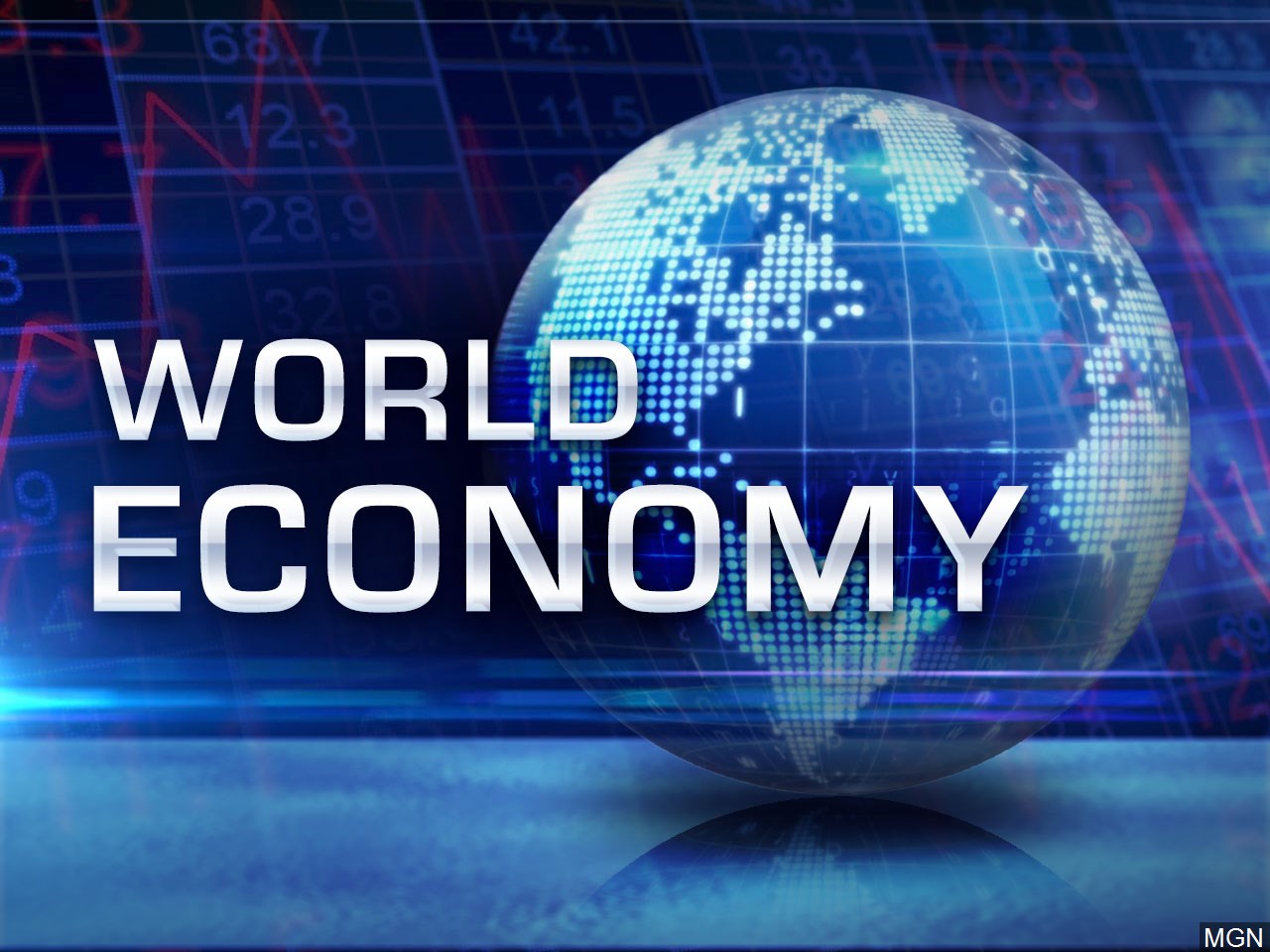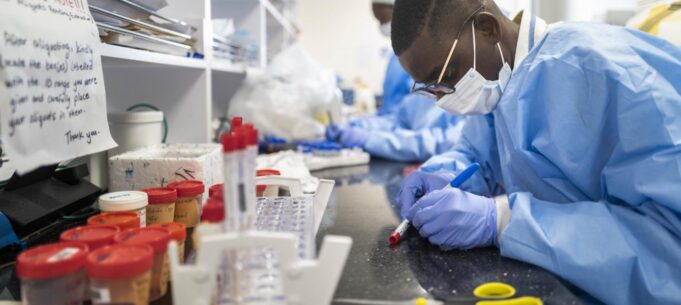In an open letter signed by 550 internationally renowned personalities, which includes African economists, in a move that’s the intellectual equivalent of marching in the street, they challenged the continent and its leaders “to forge ahead and aspire to a better future in which all of its people can thrive and realize their full potential.”

While the resource rich continent has the intellectual and physical potential to improve the quality of life for its 1.2 billion mostly youthful inhabitants, “decades of colonial and postcolonial socio-economic dislocation exacerbated by market liberalization have forced African countries into a vicious cycle involving several structural deficiencies, characterized by: a lack of food sovereignty; a lack of energy sovereignty; and low value-added manufacturing and extractive industries,” the open letter reads.
With the global economy in “free fall” as captured recently in a piece published by CounterPunch.org titled: “In the Worst of Times, the Billionaire Elite Plunder Working Class America,” from April to June “the world’s largest economies, fell almost 10 percent in the same period—also four times greater than in the 2009 global collapse—and global GDP is expected to decrease by five percent this year, a historic amount. Yet the stock market blithely rushes along, as the mega-rich try to squeeze the last drops they can out of it, ahead of the (coming) abyss.”
When the pandemic first hit, Goldman Sachs’ Jeff Curries forecast in a note to clients, “The global economy is a complex physical system with physical frictions, and energy sits near the top of that complexity … It is impossible to shut down that much demand without large and persistent ramifications to supply.”
In this financial advisory to his wealthy clients, Currie explored the immense challenges the industry faces as it aims to balance supply and demand in a “profitable” way.
According to CounterPunch, a profitable way means while some 30–50 million people in the U.S. are at risk of eviction in coming months and food prices are rising at the fastest rate in nearly 50 years, making meat and eggs unaffordable for many, “during the week of August 24-28 alone, the world’s 500 wealthiest people increased their wealth by $209 billion. The world’s 10 richest billionaires now collectively have more than $1 trillion.”
The secret to their success includes engaging in the largest stock buybacks in history. “This self-enrichment tactic inflates the value of a company’s stock by buying it back from shareholders, thus giving money directly to the shareholders by the tens and hundreds of billions and enriching them further by decreasing the number of remaining shares available for investors to buy—driving up the share price.”
Africa historically being chained to western capitalism or market share has always meant if Europe and U.S. economies faltered the continent would immediately suffer economically.
A case in point is the continent’s most developed country, South Africa. After it imposed a strict Covid-19 lockdown in March, closing most businesses, according to the Wall Street Journal, it’s “economy shrank by an annualized 51 percent in the second quarter.” This was South Africa’s “worst quarterly decline in at least a century and one of the steepest contractions recorded by any major economy during the coronavirus pandemic.”
To add insult to injury with France experiencing a decline of its influence on the global stage “the French grip on West Africa is tightening in what appears to be a desperate attempt to cling onto influence that is fleeting,” reported zammagazine.com.
“West Africa is really vital to France,” said Aminu Bappa, an advocate from Nigeria who supports the end of the CFA franc. According to him, the French are agreeing to a currency change not to foster a better relationship with its former colonies, but to further entrench French influence.
The open letter is actually one of several declarations born out of the pandemic. This one from public intellectuals is calling for deep structural reforms to build more resilience during the pandemic.

The African Economic and Monetary Sovereignty initiative began almost three years ago. Its purpose is “to add our voices to this momentum by highlighting the importance of enhancing economic and monetary sovereignty in Africa and implementing an alternative economic development model.”
Economist Dr. Ndongo Sylla told Africa Watch, “monetary sovereignty” is when a country issues its own currency, “tax(es) the population in its own currency, is able to issue debt in the national currency (in other words, they don’t have to borrow and repay in another currency), and they don’t fix their exchange rate to gold, or dollars, or any other nation’s money.”
Some, like the 14 African nations that use the CFA Franc, did so involuntarily. Others gave up monetary sovereignty willingly. The CFA Franc is the currency imposed on the former French colonies in Africa unable to achieve a stable currency.
According to Dr. Sylla, not all countries are equal. “There are those with full monetary sovereignty, like the U.S., Japan or China, and there are countries that have given up their national currency.”
This “produces a very painful downward pressure on African exchange rates, which means higher prices for imports of vital necessities such as food, fuel, and life-saving medical products. In order to protect people from this type of imported inflation, African governments borrow foreign currencies in order to artificially keep African currencies ‘strong’ relative to the U.S. dollar and the euro,” the letter said.
The architects of the open letter include economists Fadhel Kaboub from Denison University in Ohio; Ndongo Samba Sylla from Université Cheikh Anta Diop in Dakar, Senegal; Kai Koddenbrock from Goethe University in Frankfurt, Germany; Ines Mahmoud and Maha Ben Gadha from Tunis, Tunisia.
They call for “African states to develop a strategic plan focused on reclaiming their monetary and economic sovereignty, which must include food sovereignty, (renewable) energy sovereignty, and an industrial policy centered on higher value-added content of manufacturing. Africa must put an end to its race-to-the-bottom approach to economic development in the name of competition and efficiency. Regional trade partnerships within the continent must be based on coordinated investments aimed at forming horizontal industrial linkages in strategic areas such as public health, transportation, telecommunications, research and development, and education.”
In addition, the open letter encourages African states to put much effort into developing “a clear and independent long-term vision to build resilience to external shocks. Economic and monetary sovereignty do not require isolation, but they do require a commitment to economic, social, and ecological priorities, which means mobilizing domestic and regional resources to improve the quality of life on the continent. This means becoming more selective when it comes to FDI, and export-oriented, extractive industries. It also means prioritizing eco-tourism, cultural heritage, and indigenous industries.”
Share this article or the open letter on social media with hashtag #AfricanMonetarySovereignty and follow the architects of the letter on Twitter @Mon_Sovereignty for more frequent updates.
(Follow @jehronmuhammad on Twitter.)













